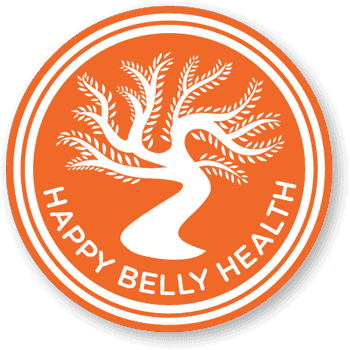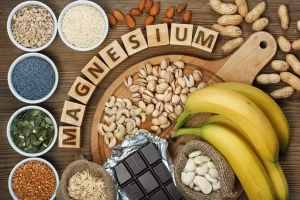Marvels of Vitamin K for Healthy Nutrition
Adapted from article by Dr. Joseph Mercola
Fighting Cancer
- Vitamin K2 and Cancer Risk:
- Linked to a nearly 30% reduction in cancer mortality.
- Associated with a 14% lowered risk of developing cancer.
- A Mayo Clinic study found a 45% lower risk of Non-Hodgkin lymphoma among those with the highest dietary intakes.
- The reduction in cancer risk remained significant even after accounting for factors like smoking, alcohol use, obesity, and high antioxidant diets.
- Other Cancers:
- Vitamin K has shown benefits in fighting cancers of the liver, colon, stomach, nasopharynx, and oral regions.
- Some studies suggest that vitamin K could be used therapeutically for lung cancer, liver cancer, and leukemia.
- Prostate Cancer:
- A 2008 study by the European Prospective Investigation into Cancer and Nutrition (EPIC) found a 35% reduced risk of prostate cancer with increased vitamin K2 intake.
- A 2008 study by the European Prospective Investigation into Cancer and Nutrition (EPIC) found a 35% reduced risk of prostate cancer with increased vitamin K2 intake.
Improve Bone Density
- Vitamin K’s Role:
- Acts as a biological “glue” that helps integrate calcium into your bone matrix.
- A study comparing vitamin K to the biphosphonate drug Didronel found no difference in bone fracture rates among 72 osteoporotic women over two years.
- Other studies have shown vitamin K to be as effective as Fosamax-type osteoporosis drugs, but without the severe side effects.
Prevent Heart Disease
- Heart Health:
- Vitamin K helps prevent the hardening of arteries, a common issue in coronary artery disease and heart failure.
- It may also prevent calcium from depositing in artery linings and other tissues, where it can cause damage.
- Notably, vitamin K is effective in reducing existing arterial plaque.
Stave off Varicose Veins
- Vitamin K and Varicose Veins:
- Inadequate levels of vitamin K may reduce the activity of matrix GLA protein (MGP), a key player in the development of varicose veins.
- Adequate dietary intake of vitamin K is believed to be necessary for preventing varicose veins by activating MGP.
Lower Your Risk of Diabetes
- Diabetes Risk Reduction:
- Research from University Medical Center Utrecht in the Netherlands found that those with the highest intakes of vitamin K had a 20% lower risk of diabetes compared to those with the lowest intakes.
- Previous studies have also shown that vitamin K can help reduce the progression of insulin resistance.
Why It’s Important to Get Plenty of Vitamin K as Part of Healthy Nutrition
Vitamin K is most well known for the important role it plays in blood clotting, but it does so much more…
How Much Vitamin K do You Need for Healthy Nutrition?
Many people are not getting the currently recommended intakes of vitamin K, which are likely already too low What We Eat In America NHANES 2001–2002, only one in four Americans are meeting the recommended levels of dietary vitamin K.
Further, the Institute of Medicine’s recommended daily intake of 120 micrograms for men and 90 for women are based on levels that will ensure adequate blood coagulation. But vitamin K is important for more than just blood clotting; it impacts the health of your bones, arteries and immune system as well.
Now emerging research, including the “triage theory” from Joyce McCann, PhD and Bruce Ames, PhD, functions that depend on vitamin K may need higher levels than are currently recommended.
Although the exact dosing is yet to be determined, the world’s leading vitamin K expert, Dr. Cees Vermeer, recommends between 45 mcg and 185 mcg daily for adults. You must use caution on the higher doses if you take anticoagulants, but if you are generally healthy and not on these types of medications, I suggest at least 30100 mcg of vitamin K2 daily depending on your typical daily food choices.
For comparison’s sake, in the diabetes study from the University Medical Center Utrecht in the Netherlands intakes and therefore experienced the greatest protection against diabetes were consuming between 250 and 360 mcg of vitamin K daily from their diets.
Vitamin K1, K2 and K3 … What’s the Difference?
There are three types of vitamin K:
● Vitamin K1, or phylloquinone, is found naturally in plants
● Vitamin K2, also called menaquinone, is made by the bacteria that line your gastrointestinal tract
● Vitamin K3, or menadione, is a synthetic form that is manmade, and which I do not recommend.
You should strive to include both vitamin K1 and vitamin K2 in your diet, as both are beneficial for healthy nutrition. K1 is found in dark green leafy vegetables, and makes up about 90 percent of the vitamin K in a typical Western diet. Collard greens, spinach, salad greens, kale broccoli and Brussels sprouts are particularly good sources.
In a healthy body, we can convert K1 into K2, but it is Vitamin K2 which is the powerful component in building bone density, avoiding kidney stones, and preventing arteriosclerosis, both critical examples of the need to manage calcium in the body.
The best natural source of vitamin K2 is derived from an ancient Japanese food called Natto. Natto is made from fermented soybeans and significant amounts of vitamin K2 are produced during the fermentation process. You can find natto at some health food stores and Asian grocery stores. You may also find supplements derived from natto (preferably in a form of vitamin K called MK7).
Most Americans do not eat traditionally fermented foods like natto, so adding K2 to your diet from other sources (or a supplement) is a must. You can get vitamin K2 from fatty meats, egg yolks, and other fermented food aside from natto, such as certain types of cheese, raw sauerkraut, and other traditional fermented vegetables (e.g. real pickles that do not contain vinegar).
If you find yourself not consuming enough fermented foods, you will certainly want to consider taking a supplement, especially if you have osteoporosis, heart disease or risk factors for diabetes. I recommend MK7. It’s important to note that vitamin K is a fatsoluble vitamin. This means that in order for your body to absorb it effectively, you need to eat some fat along with it.






